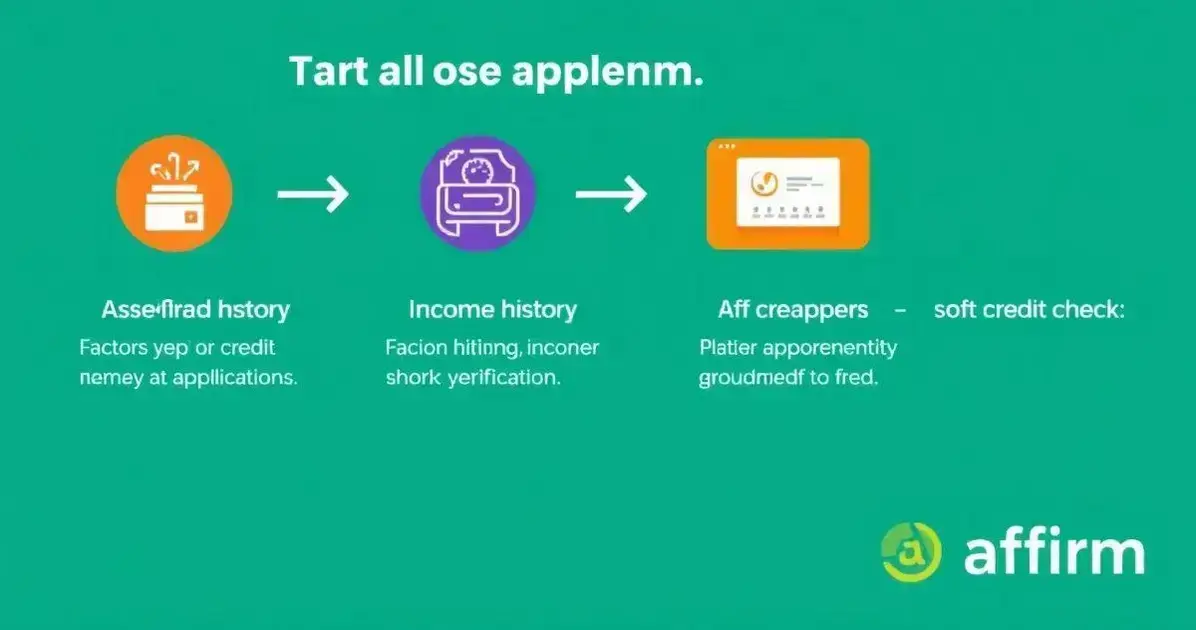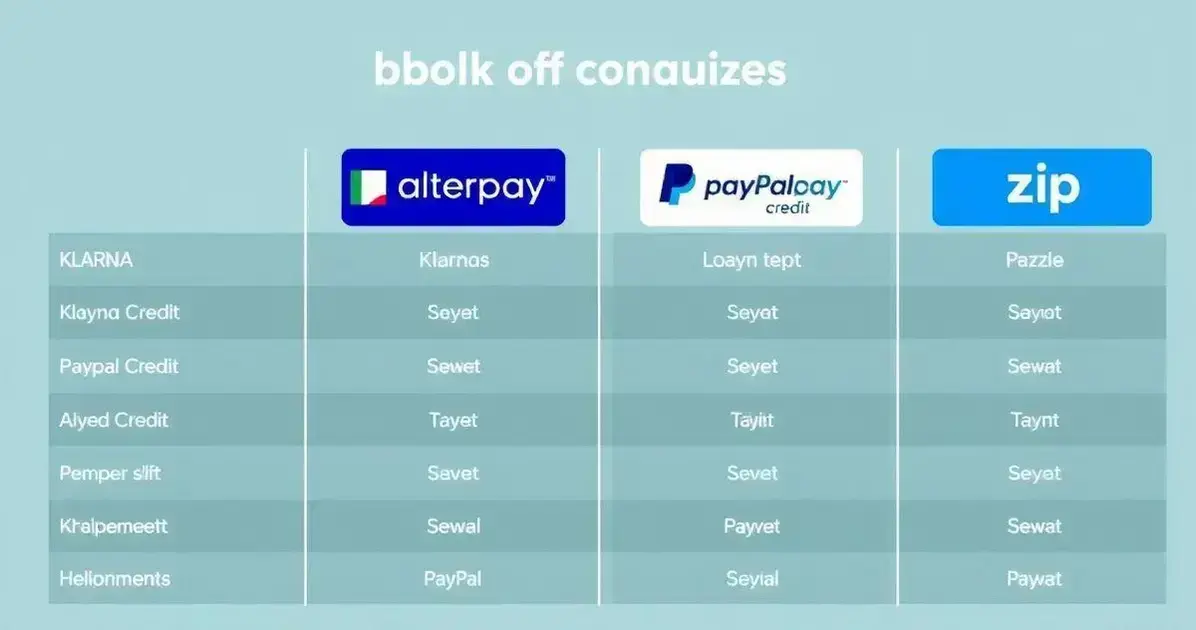Are you asking yourself, what credit score do I need for Affirm? Knowing this can significantly impact your purchasing power.
This post will help you understand credit scores, what factors influence them, and how you can improve your score to better your chances with Affirm.
Let’s dive into the essentials that can enhance your financial journey!
Understanding Credit Scores
Understanding credit scores is essential for making informed financial decisions. Credit scores are numerical representations of your creditworthiness. They typically range from 300 to 850, with higher scores indicating better credit health. Understanding how these scores work can help you manage your financial future.
What is a Credit Score?
A credit score is a number that lenders use to determine how likely you are to repay a loan. This number is calculated based on your credit history and other financial behaviors. The score is influenced by factors such as payment history, the amount of debt, credit history length, new credit requests, and types of credit in use.
Why Are Credit Scores Important?
Credit scores are vital because they affect your ability to borrow money. Lenders like banks and credit card companies use these scores to decide whether to grant you credit and under what terms. A higher score can lead to lower interest rates and better loan conditions, while a lower score may result in declined credit applications or higher rates.
The Range of Credit Scores
Generally, credit scores are categorized as follows:
- Poor: 300-579
- Fair: 580-669
- Good: 670-739
- Very Good: 740-799
- Excellent: 800-850
Knowing where your score falls in this range can help you gauge your credit health and plan for improvements.
How Can You Check Your Credit Score?
You can check your credit score through several means. Many financial institutions provide free credit score access to their customers, and you can also get a free annual credit report from major credit bureaus. Regularly checking your score helps you stay informed and catch any discrepancies early.
Understanding your credit score empowers you to take control of your financial journey. By monitoring your score and knowing what influences it, you can make decisions that lead to a healthier credit profile.
Factors Affecting Your Credit Score
Several factors affect your credit score. Understanding these can help you improve your credit profile over time. Here are the main factors that lenders consider:
Payment History
This is the most crucial aspect of your credit score. On-time payments contribute positively, while late payments, collections, or bankruptcies can significantly lower your score. Maintaining a consistent payment history demonstrates reliability to lenders.
Credit Utilization Ratio
Your credit utilization ratio refers to how much of your available credit you are using. It is essential to keep this ratio below 30%. High usage indicates risk to lenders, while lower utilization reflects responsible credit management.
Length of Credit History
The longer you’ve had credit, the better. A lengthy credit history shows lenders that you have experience managing debt. If you’re new to credit, consider maintaining old accounts, even if you’re not using them regularly.
Types of Credit
Having a mix of credit types—such as credit cards, mortgages, and installment loans—can positively impact your score. Lenders like to see that you can manage different types of credit effectively.
New Credit Inquiries
When you apply for a new credit account, lenders perform a hard inquiry on your credit report, which can slightly lower your score. Multiple inquiries in a short period may raise a red flag for lenders, indicating that you’re taking on too much new debt.
Each of these factors plays a vital role in determining your credit score. By understanding and managing them, you can work toward achieving a higher score, which is crucial for securing favorable loan terms.
How Affirm Evaluates Your Credit

When you apply to use Affirm, they perform a thorough evaluation of your creditworthiness. This evaluation helps them decide if you can afford to repay the loan. Here’s how Affirm evaluates your credit:
Review of Credit History
Affirm looks at your credit history to see how well you have managed past debts. They consider factors like payment history, outstanding debts, and any recent delinquencies. This helps them gauge your reliability as a borrower.
Soft Credit Check
Unlike a traditional lender, Affirm conducts a soft credit check, which won’t harm your credit score. This process provides them with a view of your credit risk without a hard inquiry.
Income Verification
Your income plays a significant role in the evaluation. Affirm may ask for your income details to ensure you have the financial means to make the required payments. This helps them assess your ability to repay the loan on time.
Affirm’s Algorithm
Affirm uses a unique algorithm that analyzes various data points, including your credit score, credit history, and income. This algorithm allows them to approve loans based on a variety of customer profiles, not just traditional credit scoring.
Loan Amount Considerations
The amount of credit offered may also depend on how much you have borrowed from Affirm in the past and your repayment behavior. If you repay previous loans on time, you may qualify for higher amounts in the future.
Understanding how Affirm evaluates your credit can help you prepare for the application process. By having a good credit history and being transparent about your income, you can improve your chances of approval.
Minimum Credit Score Requirements
When applying for financing through Affirm, it is essential to know the minimum credit score requirements. While Affirm does not publicly disclose an exact score, they generally look for certain thresholds to approve loans.
Typical Credit Score Range
Most customers with credit scores in the range of 580 to 700 are likely to qualify for Affirm. Those with scores below 580 may face challenges in getting approved, while higher scores increase the likelihood of securing a loan with better terms.
Importance of Credit Score
Your credit score is a significant factor for Affirm. It helps them assess your ability to repay the loan. A higher score usually indicates responsible credit behavior, making you a more attractive candidate for loan approval.
Soft Credit Check
When you apply with Affirm, they perform a soft credit check. This means your score will not drop as a result of applying for a loan. They consider your creditworthiness without negatively impacting your credit report.
Other Financial Factors
In addition to your credit score, Affirm also looks at your financial situation as a whole. Factors like income, employment history, and personal expenses can influence their decision. This means that even if your score is lower, you might still qualify if other areas are strong.
Understanding the minimum credit score requirements can help you prepare when applying for a loan through Affirm. Aim to improve your score and manage your financial habits wisely to enhance your chances of approval.
Improving Your Credit Score
Improving your credit score is an achievable goal that can lead to better financial opportunities. Here are some effective strategies for improving your credit score:
Pay Your Bills on Time
Your payment history makes up a huge part of your credit score. Always pay your bills on or before the due date to maintain a positive record. Setting reminders or automating payments can help you stay on track.
Reduce Credit Card Balances
Keeping your credit utilization below 30% is recommended. Pay down existing balances regularly, and avoid maxing out your cards. This shows lenders that you can manage credit responsibly.
Keep Old Accounts Open
Length of credit history is important. Keeping older accounts open, even if you don’t use them often, can help improve your credit score by showing a longer history of responsible credit use.
Avoid New Hard Inquiries
Limit the number of times you apply for new credit, as each application can lead to a hard inquiry that may negatively affect your score. Space out applications and only apply when necessary.
Check Your Credit Report Regularly
Obtaining a free copy of your credit report allows you to check for errors. If you find inaccuracies, dispute them with the credit bureau. Correcting mistakes can lead to a higher score.
Consider Credit-Building Tools
Look into credit-builder loans or secured credit cards. These tools can help you build positive credit history when used responsibly. Make sure to choose options that report to major credit bureaus.
By implementing these strategies, you can gradually improve your credit score, unlocking better options for loans and credit products in the future.
Alternatives to Affirm

If you are considering alternatives to Affirm, several options can help you make purchases while managing your payments. Here are some popular alternatives to Affirm:
Klarna
Klarna offers similar buy-now, pay-later options. With Klarna, you can either pay in full later or split your purchase into several payments. They also provide various promotions and discounts with partner retailers.
Afterpay
Afterpay allows you to shop online and pay in four equal installments, due every two weeks. There are no interest fees if you pay on time, making it a popular choice for many shoppers who want to budget their spending.
PayPal Credit
PayPal Credit offers a line of credit for online purchases. You can use it anywhere PayPal is accepted and occasionally receive promotional financing options, such as no interest if paid in full within six months.
Sezzle
Sezzle helps you split your purchases into four interest-free payments. You can pay every two weeks, helping you manage your budget while shopping at various online retailers.
Zip
Zip (formerly Quadpay) lets you shop now and pay later in four installments. You can use it at various retailers, and they do not charge you interest if your payments are made on time.
Choosing the right alternative depends on your financial goals and spending habits. Each option has its features, so be sure to evaluate which one aligns best with your needs for making purchases.
What Credit Score Do I Need for Affirm? Final Considerations
Knowing what credit score do I need for Affirm can open up many opportunities for you. By grasping concepts such as how credit scores are evaluated, the factors affecting your score, and how to improve it, you position yourself to make better financial choices.
Moreover, exploring alternatives to Affirm can give you flexibility in how you manage your purchases and payments. Keep in mind that building a strong credit profile takes time, but the rewards, such as lower interest rates and better loan terms, are worth the effort.
By taking control of your credit journey, you can pave the way for financial growth and security in the future.

